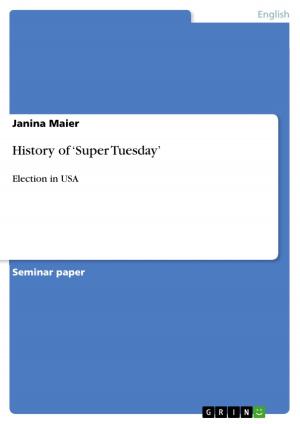Comparative Analysis Of Amo Breed Of Broiler Birds Fed With Commercial And Self Formulated Feed
Nonfiction, Science & Nature, Technology, Agriculture & Animal Husbandry| Author: | Nickson Ochika | ISBN: | 9783668149892 |
| Publisher: | GRIN Publishing | Publication: | February 15, 2016 |
| Imprint: | GRIN Publishing | Language: | English |
| Author: | Nickson Ochika |
| ISBN: | 9783668149892 |
| Publisher: | GRIN Publishing |
| Publication: | February 15, 2016 |
| Imprint: | GRIN Publishing |
| Language: | English |
Scientific Study from the year 2015 in the subject Agrarian Studies, , language: English, abstract: This study is aimed at comparing the effect of commercial and formulated feed on Amo breed of broilers. A comparative analysis of commercial and formulated feed on Amo breed of broiler was carried out. The term 'poultry' used in agriculture generally refers to all domesticated birds kept for eggs or meat production. These include chickens, (domesticated fowl) turkey, ducks, geese, pigeons, guinea fowl and other birds. The most common of all these in Nigeria is the domestic fowl. Sometime the term 'poultry' is considered synonymous with chickens (Igbokwe 2010). The term poultry is a broad classification covering the species of all domesticated birds that are raised primarily for the production of meat and eggs for human consumption. The term applies to chickens, turkeys, ducks, swans, geese, guinea fowl and other birds. However, among all these food producing birds, chickens are probably more than all the other birds and found throughout the world, (Feetham 1990). Poultry production is one of the most important agricultural business practiced in Nigeria. But one of the challenges posed on the production of poultry is that the feed are mostly derived from crops such as maize, sorghum, and other grain crops. As a consequence, feed ingredients need to be acquired from distant supply area and may not be hundred percent (100%) sufficient in nutrients content and also very expensive (Nyoupayou 1990). Researches have been undertaken since the 1930s on ways to improve feeds efficiency in broiler birds' production. Comparative trials have been conducted on the use of commercially formulated feeds and the locally produced ones to find out the most efficient form of feed that yields high growth rate and reduce production costs. (Mc Donald, 1987).
Scientific Study from the year 2015 in the subject Agrarian Studies, , language: English, abstract: This study is aimed at comparing the effect of commercial and formulated feed on Amo breed of broilers. A comparative analysis of commercial and formulated feed on Amo breed of broiler was carried out. The term 'poultry' used in agriculture generally refers to all domesticated birds kept for eggs or meat production. These include chickens, (domesticated fowl) turkey, ducks, geese, pigeons, guinea fowl and other birds. The most common of all these in Nigeria is the domestic fowl. Sometime the term 'poultry' is considered synonymous with chickens (Igbokwe 2010). The term poultry is a broad classification covering the species of all domesticated birds that are raised primarily for the production of meat and eggs for human consumption. The term applies to chickens, turkeys, ducks, swans, geese, guinea fowl and other birds. However, among all these food producing birds, chickens are probably more than all the other birds and found throughout the world, (Feetham 1990). Poultry production is one of the most important agricultural business practiced in Nigeria. But one of the challenges posed on the production of poultry is that the feed are mostly derived from crops such as maize, sorghum, and other grain crops. As a consequence, feed ingredients need to be acquired from distant supply area and may not be hundred percent (100%) sufficient in nutrients content and also very expensive (Nyoupayou 1990). Researches have been undertaken since the 1930s on ways to improve feeds efficiency in broiler birds' production. Comparative trials have been conducted on the use of commercially formulated feeds and the locally produced ones to find out the most efficient form of feed that yields high growth rate and reduce production costs. (Mc Donald, 1987).















